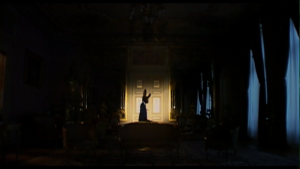Um so schlimmer für die Tatsachen
Ernst Bloch’s first wife owned gold mines in Russia: “I used to say that I paid 30 million marks for the Russian Revolution, but that it was worth the price to me!”
There’s something very cheerful about that remark, which was made in 1974 or so (note the “used to.”) I’m teaching selections from The Principle of Hope this week in my utopia and modernism seminar. Like many of Bloch’s readers, I’m fascinated by his discussion of the relation between ideology and utopia, that the former could produce only crudities without the inherent anticipatory illumination ("Vor-Schein") of the latter. It seems that a type of default critical understanding of David Lynch has been produced through reference to Lacan and Zizek; I wonder if Bloch can’t add something.
Why Lynch, of all people? Well, I’m glad you asked. The levels of being—the embedded realities—in INLAND EMPIRE are rule-governed in a sense. They reflect an inevitable political understanding, one tied closely to Lynch’s nascent ideas about Poland and the United States. I don’t think that Penderecki is used as prominently as he is, for example, just because of Kubrick (or because Lynch had a defining moment with him and his Altec-Lansings, as recounted on one of the second disc’s interviews).
I presented a paper about this last week in Atlanta where I didn’t have time to go into the Blochian underpinning, but I’m thinking about it more now.
